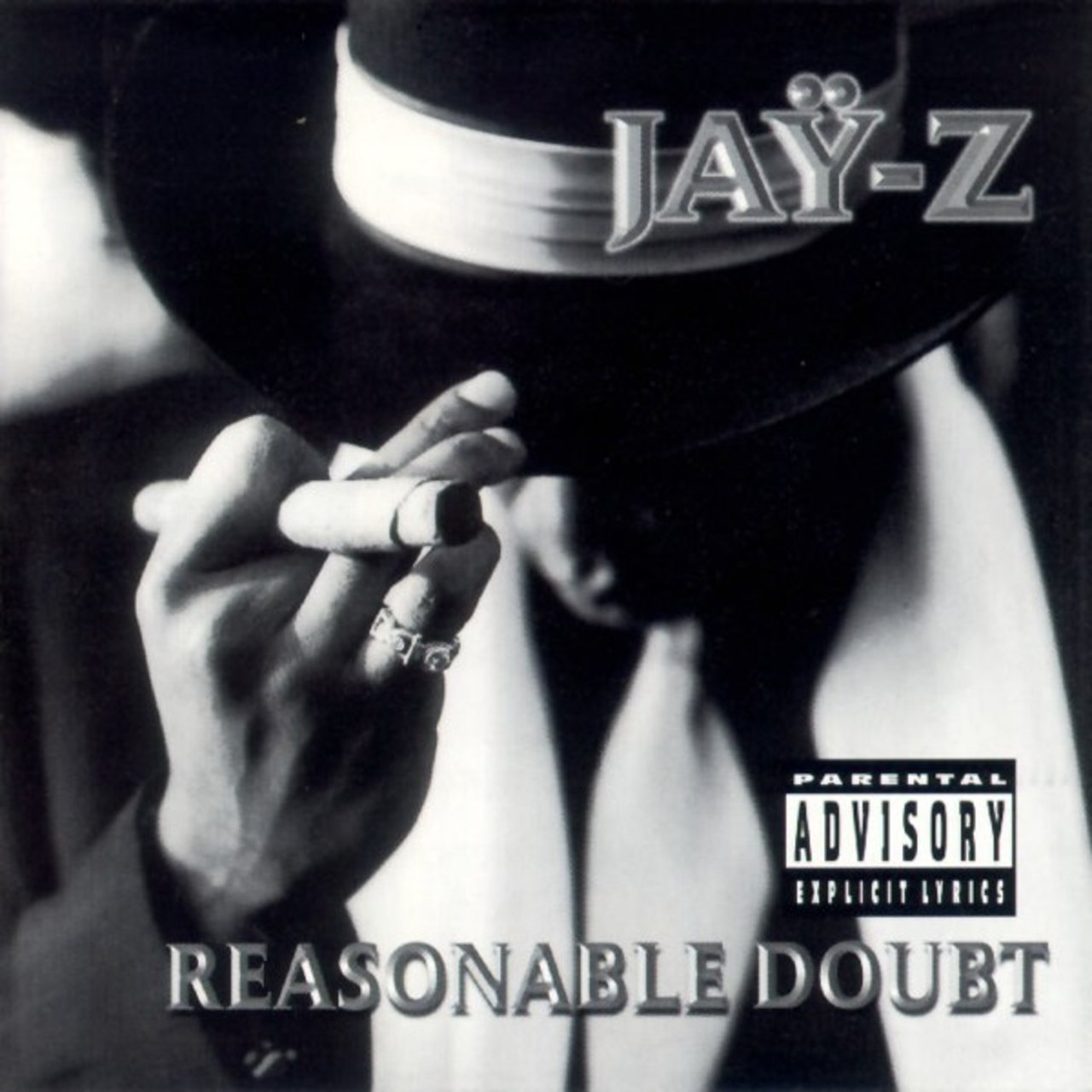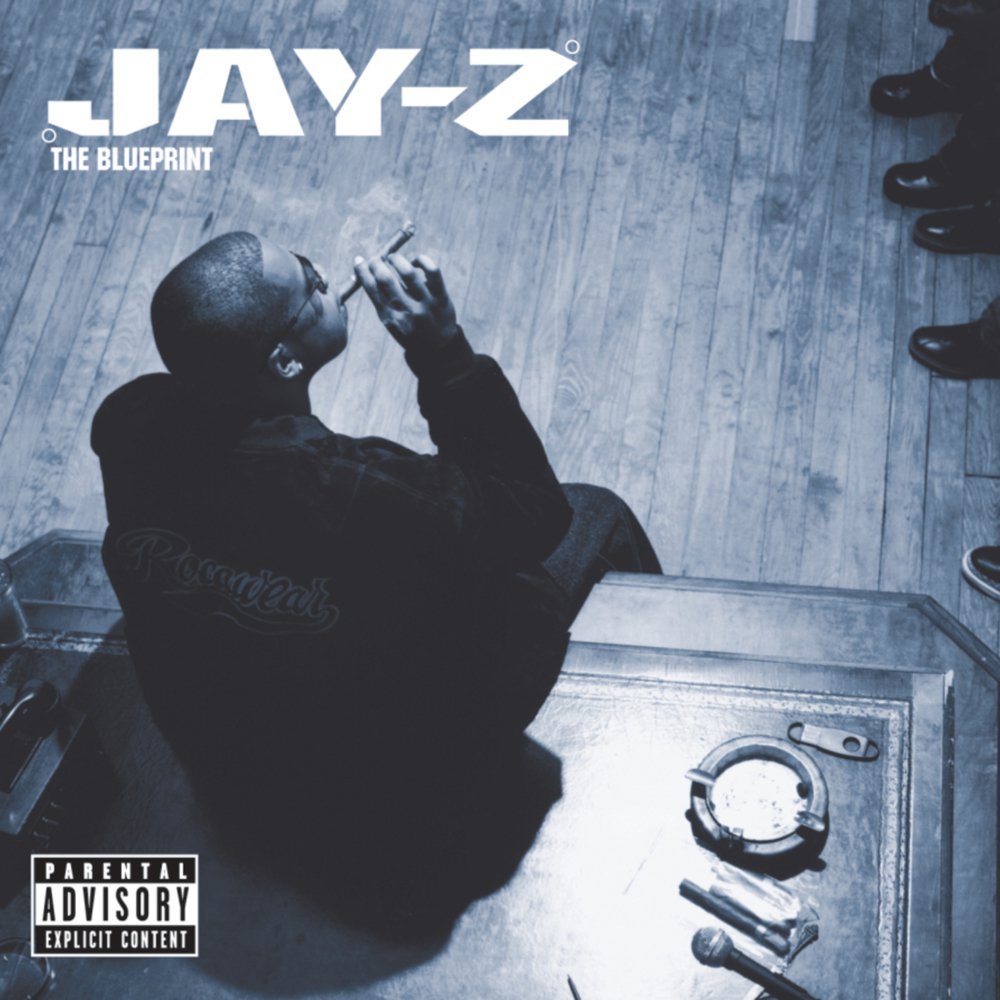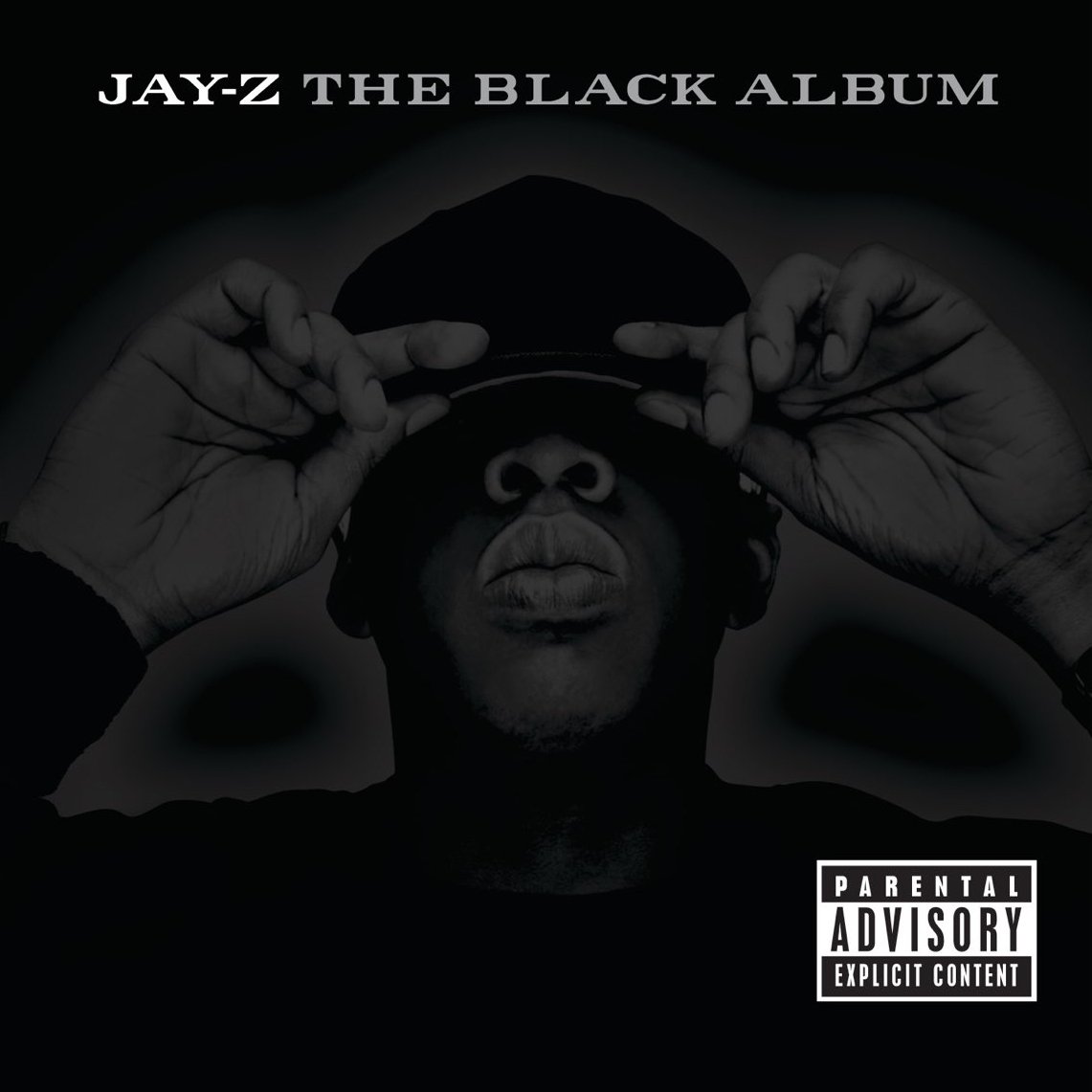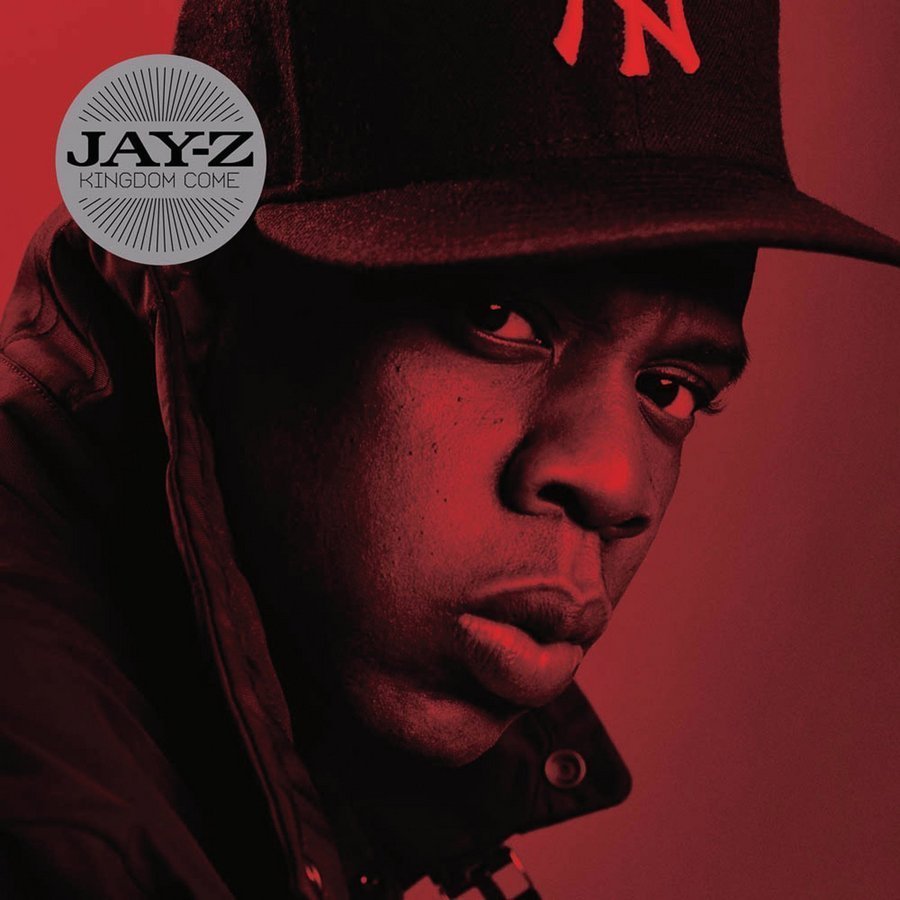Happy 25th Anniversary to Jay-Z’s second studio album In My Lifetime, Vol. 1, originally released November 4, 1997.
As an Amazon affiliate partner, Albumism earns commissions from qualifying purchases.
It’s accepted that in late 1997, hip-hop was in need of a poster child. Two of its brightest stars, 2Pac and The Notorious B.I.G., had tragically fallen in the span of six months, just as hip-hop was earning play on daytime radio and prime-time MTV, back when both of those things were important. The closest figure it had was Puff Daddy, the CEO of Bad Boy Records, who recorded his debut album mostly as a joke, but now found himself one of hip-hop’s biggest stars.
Enter Shawn “Jay-Z” Carter, a Brooklyn-born emcee who had been recording music since the late ’80s, but had found his groove with Reasonable Doubt, his debut solo album that he released through his own imprint, Roc-A-Fella, and Priority Records in 1996. The album went gold and earned him critical acclaim. With his sophomore effort, In My Lifetime, Vol. 1, he sought to elevate his game and become the superhero the hip-hop industry wanted in order to be taken seriously as a mainstream cultural force.
In My Lifetime was Jay-Z’s effort to fill the Biggie-sized gap in hip-hop in general and New York in particular. Much like his fellow Brooklynite, Jigga had an abundance of skill, style, and undeniable charisma and charm. Like Biggie, he also had the street credentials that he drew from when putting together his rhymes. They possessed unique story-telling abilities, with a keen sense of how to set the scene and skill for providing the small details to give the stories an increased sense of realism. But Jigga’s gift for complicated word-play and conversational flow set him apart from many of the other mainstream emcees at the time.
The album was Jay-Z’s first that he distributed through Def Jam Records. The venerable label had fallen on hard times through the mid-1990s, and was looking to a crop of up-and-coming New York-based emcees to lead them back to the top. Jay-Z was the tip of the spear, the label’s first and perhaps best shot at carrying a bona fide rap superstar. They saw him as an artist who was “street” enough to be undeniably authentic, but also had the abilities to release music that could move units.
With Jay’s debut Reasonable Doubt, he demonstrated the ability to create both songs that appeal to a broader audience (“Can’t Knock the Hustle” with Mary J. Blige and “Ain’t No N***a” with Foxy Brown) as well as ones that showcased his personality and lyrical ability (“Dead Presidents” and “Feelin’ It”). In My Lifetime sought to maintain that balance: provide a healthy dose of gritty street rhymes, accompanied with a number of tracks to get run in the clubs and on the radio, capitalizing on hip-hop’s growing pop audience. As can be expected, the latter provided the album with its bumpiest moments, but the former keeps the album running.
Jay-Z opens the album with the DJ Premier-produced “A Million and One Questions / Rhyme No More” intro, which is really two separate mini-tracks that set the album’s tone. On the first segment, “A Million and One Reasons”, Jay expresses his frustrations over the cost of increased fame and celebrity, including nosy media personalities and others hoping that he falters. The more mellow “Rhyme No More” is the lyrically superior of the two installments, as Jigga raps, “My flow expose holes that they find in yours / Wasn’t for me, n***as still be dying for whores / But I hate when a n***a sit back, admiring yours / Young blood you better get that, we frying because/ N***as don't want to be confined to riding the iron horse / And don't listen to the rappers, they dying to floss.”
Watch the Official Videos:
In My Lifetime establishes its groove with “Streets Is Watching,” one of the album’s strongest songs. Jay takes the role of a wary street veteran, always handling his business with the knowledge that complacency can kill. He starts the track with the best opening lines he’s ever used, proclaiming, “Look, if I shoot you, I’m brainless / But if you shoot me, then you're famous / What’s a n***a to do?” The track’s mood is bolstered by producer Ski’s flip of the intro to Labi Siffre’s “I Got The,” giving a sinister, almost Blaxsploitation soundtrack feel. Ski (currently known as Ski Beatz) has an established history with Jay-Z, working with him in the early ’90s as a member of the crew Original Flavor (managed by Jay’s business partner at the time, Dame Dash) and producer of four tracks on Reasonable Doubt.
Jay opens the second verse to “Streets Is Watching” in equally memorable fashion, reflecting on how he must always protect himself from potential enemies looking to make a name for themselves by taking him out, rapping “Now it’s hard not to kill n***as / It’s like a full time job not to kill n***as, can’t chill / The streets is watching when you froze your arms / N***a want to test you when your gun goes warm / Can’t get caught with your feet up, got to keep your heat up / Sweet n***as running ’round swearing shit is sweeter / Once you’re tagged lame, the game is follow the leader.” There’s also the obvious double meaning to the song, as Jay’s lyrics could either refer to the drug game or hip-hop, as he knows he must always remain sharp and stay aware of any younger up-and-comers looking to make a name for themselves by taking him out.
The album flows seamlessly in “Friend or Foe ’98,” a DJ Premier-produced gem that serves as the logical extension of the importance of keeping an eye out for your enemies. It’s a sequel to Reasonable Doubt’s “Friend or Foe,” where JAY confronts a rival drug dealer trying to move in on his territory, and lets him know in uncertain terms that he’s gotta leave town or end up dead. Part two finds Jay-Z and his crew armed to the teeth, kicking in the door at the rival dealer’s hotel to make him pay for not heeding JAY’s warning. Over an expertly flipped string-driven sample of Main Ingredient’s “Car of Love,” Jigga kicks some “motion picture shit,” describes the encounter in minute detail, even injecting his trademark dry humor as talks shit to the man he’s about to kill.
“Rap Game / Crack Game” is another effort where Jay-Z draws clear parallels between selling music and slinging drugs. Over a track by his homie/mentor Big Jaz, Jay delivers rapid-fire rhymes about how he builds his fame through music through the use of the drug-dealing work ethic, rapping, “And my singles like jums, you know the treys / Get you high for a while, but the high don’t stay / You need another fix, you better cop these last two bricks / ’Cause when this shit flip, Imma get on some other shit.”
“Imaginary Player” is a witty entry into his discography, as he explains how he’s got more money than you do (yes, you), while all the other rappers out there are faking jax and trying to be like him. The track is one of the better examples of Jay rapping over a smooth R&B loop (in this case, René and Angela’s “Imaginary Playmates”) and turning it into a street anthem. The song is prototypical “swag rap,” before the term became corny and lost its significance. The contempt in his delivery is palpable when he delivers lines like, “Y’all rapping-ass n***as, y’all funny to me / You’re selling records being you, but still you wanna be me / I guess for every buck you make it's like a hundred for me / And still you running around thinking you got something on me.” And don’t even bother asking him the difference between a 4.0 and 4.6, you’ll only be insulted. Now beat it.
In My Lifetime only suffers when it hews too close to the Puff Daddy/Bad Boy model for making “hits.” The tactic of sampling a loop for a catchy and recognizable soul, R&B, or even old school hip-hop tracks and then repurposing a hook from an ’80s pop track may have worked for the Puffies or Mases of the world, but for Jay-Z, it was not a formula conducive to quality music.
Take “The City Is Mine,” the album’s second single. Producer Teddy Riley pairs a moderately funky loop from the Jones Girls’ “You Gonna Make Me Love Somebody Else” with the group Blackstreet’s syrupy singing of Glenn Frey’s “You Belong to the City.” The unofficial theme song to Miami Vice is already considered one of the worst things to come out of the ’80s, so why Jay-Z would use it as his inspiration to declare himself the heir to Biggie is baffling.
Even worse is “Sunshine,” the album’s first single and Jigga’s attempt to duplicate the success of “Ain’t No N***a” by turning it into a slick, shiny-suit rap track. Like the aforementioned song, “Sunshine” features JAY and Foxy Brown trading verses, but this time around he enlists Babyface to re-sing the hook to the Alexander O’Neal song of the same name while rapping over the Fearless Four’s “Rockin’ It.” The added bassline and plastic sounding drums just make everything sound over-produced, and the whole effort results in one of the worst songs in Jay-Z’s repertoire.
“I Know What Girls Like” is the third Bad Boy-esque track on the album, and the only one actually produced by Puff Daddy (along with Amen Ra of Puffy’s Hitmen stable). It’s also the only of the three tracks that I enjoy, though I recognize that I may be the only person who does. Here Jigga and Lil’ Kim drop verses over the beat from “Fly Girl” by the B-Boys, with Puffy and Kim re-purposing the Waitresses’ “I Know What Boys Like” for the chorus. The song is lazy in the ways that many Puffy-helmed tracks were at the time, but I cut it some slack because I’m just a sucker for the “Fly Girl” beat and a strong verse by Jay himself.
While Jay-Z’s Bad Boy impressions remain the worst moments of the album, his interpretations of tracks from the mind of Biggie are more successful. “Face/Off” and “Real N***az” were built around lyrics and hooks first created by the Notorious One, and then turned into full songs by Jay. “Face/Off” is the better of the two, featuring Jay and Sauce Money trading lines over a loop of Manu DiBango’s “Soul Makossa.” Outside of the album’s intro, it’s the only pure lyrical display by Jigga on In My Lifetime. “Real N***az” isn’t as strong, but it’s still a soulfully laid back song that features a pair of guest verses from Bay Area legend Too $hort.
“Where I’m From” is one of the best songs that Jigga ever recorded: a dark depiction of the grim reality of growing up in Brooklyn’s Marcy Projects. The beat, produced by Amen-Ra & D. Dot (who in a former hip-hop life went by Two Kings in a Cipher), features a loop of Yvonne Fair’s version of “Let Your Hair Down,” and DJ Premier handles the scratches on the hook. Jigga really shines on the track, first describing his hood as a place “where the beef is inevitable, summer time is unforgettable / Boosters in abundance, buy a half-price sweater new / Your word was everything, so everything you said you'd do / You did it, couldn't talk about it if you ain't lived it.”
Enjoying this article? Click/tap on the album covers to explore more about Jay-Z:
Here Jay-Z makes his strongest case for being Biggie’s heir, as he provides lucid descriptions of street life, down to the small details, really capturing the sense of despair that permeates the neighborhood. He later vividly describes the omnipresence of hopelessness and death by rapping, “I’m from the place where the church is the flakiest / And n***as been praying to God so long that they atheist / Where you can’t put your vest away and say you’ll wear it tomorrow / ’Cause the day after we’ll be saying, ‘Damn, I was just with him yesterday.’”
In My Lifetime ends on a strong note with “You Must Love Me,” one of the most heartfelt songs that Jay has ever recorded. In each of his three verses he directly addresses three separate people that he feels that he personally wronged or hurt during his life before he became a rap star. First is his mother, to whom he sold crack. Second is his drug-addicted older brother, who he shot in the shoulder at the age of 12. And finally he addresses a former girlfriend who smuggled drugs for him. Jay elucidates how he is wracked with guilt for either directly harming the people he loves, or putting them in harm’s way, adding that he is equally baffled how all three have found ways to forgive him. Though it’s not clear whether he actually ever sold his mother crack or if the former girlfriend in the third verse is actually a real person, the emotion and pain that Jigga communicates through his lyrics is palpable and raw.
Jay-Z took his first steps to rap and music superstardom with In My Lifetime, Vol. 1; the album went platinum and took him to larger commercial heights than Reasonable Doubt had achieved when it was first released. Though he couldn’t quite find the right balance between accessibility and superior artistry with his singles, it was clear that he was a top-notch lyricist who still had tons of charisma waiting to be tapped.
He found a way to successfully tweak his formula by 1998 when, less than a year after releasing In My Lifetime, he dropped Vol. 2… Hard Knock Life. Though I personally prefer Vol. 1, there’s no doubt that the “pop” records on the album didn’t come across as pandering, and as he found a way to appeal to a broader audience while sounding more natural.
Truthfully, 25 years later, In My Lifetime, Vol. 1’s speed bumps are mostly forgotten to time, while the quality tracks still define the album’s legacy. Songs like “Streets Is Watching,” “Where I’m From,” and “You Must Love Me” helped inspire a generation of ’80s babies who were inclined to pick up the mic for the first time. Jay-Z is now an established musical institution, and In My Lifetime, Vol. 1 was a crucial step in him earning that role.
As an Amazon affiliate partner, Albumism earns commissions from qualifying purchases.
LISTEN:
Editor's note: this anniversary tribute was originally published in 2017 and has since been edited for accuracy and timeliness.





